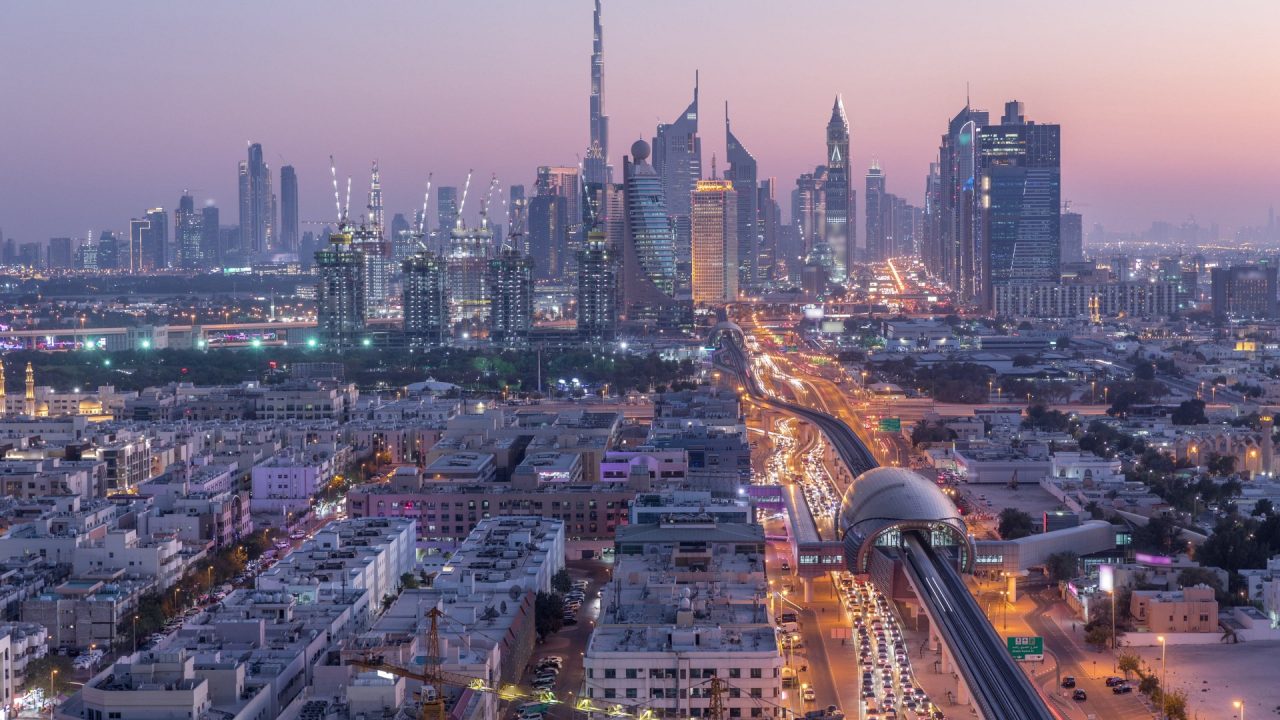Dubai’s skyline is cut in two. At the top are the tips of its skyscrapers; below, the living city. In the middle are clouds, giving the impression they are going somewhere important. Today’s Dubai is just like those clouds: hovering amidst the Dubai 2021 plan that in seven years aims to transform the glittering capital city of the Emirate of Dubai into one of the world’s most modern smart cities.
Infrastructure, digitalisation, clean energy, sustainable transport, rapid and accessible services: the government has launched at least 100 projects to be completed by 2028. This is a race against time to transform this desert oasis that has blossomed from an unprecedented building and infrastructure boom into an interconnected metropolis, sensitive to environmental issues, and a smart city model to be exported worldwide. The plan is based on Sheikh Mohammed bin Rashid Al Maktoum’s vision is to make Dubai into a smart city of the future.
From automated police stations to the abolition of paper
To understand how the concept of smart city is being implemented in Dubai, go to one of the city’s three automated police stations. You can pay fines, report accidents, or do many other things without having to speak to an agent. In addition to the three “police stations” already in operation, the government recently announced the opening of a fourth within the World Islands, the archipelago of islands designed to resemble the earth’s surface from above.
One step at a time, artificial intelligence is becoming a daily tool used to make the city and its offices work more efficiently. In the Dubai 2021 plan, artificial intelligence will also be used to constantly monitor the level of fatigue and stress of bus drivers who travel around the city, thus significantly reducing — according to the calculations of the Road Transit Authority — the number of accidents.
By totally eliminating the use of paper in public administration transactions, the government is convinced that it can save $245 million (€213 million) — in addition, of course, to the impact that this measure will have in terms of environmental protection.

Transport, real estate and economy: the future Dubai as smart city
On the transport front, the city of the future is aiming to cuts emissions and will contribute to significantly reducing urban congestion. The flagship project is the Dubai-Abu Dhabi Hyperloop, the 151-kilometer ultra-fast line that will cost up to an estimated $6 billion (€5.2 billion). The first 10-kilometre (6.2-mile) section has already been completed.
The Hyperloop, as well as new metro lines, aim to reduce congestion in a metropolis that has now exceeded 3.5 million inhabitants, but which is also forced to live with over a million cars.
Improving transport infrastructures, modernising them, and making them more sustainable is both a strategic tool for improving the quality of life as well as an economic stimulus.
The economic benefits for smart cities are outlined in a white paper called “The Role of Smart Cities for Economic Development” published by ABI Research, estimating that by 2026 the most advanced cities will be able to generate economic benefits of $20 trillion (€17 trillion).
This wealth creation derives from the many innovations called for to create a smart city, such as the commitment to comply with the Paris Agreement for climate objectives. These goals are achieved, in part, by the construction of smart buildings, and buildings with zero impact on the environment.
In recent months, Dubai has also seen the construction of a building made entirely using 3D printers.
Cities are now responsible for two thirds of the world’s energy. A report from Coalition for Urban Transition estimates that by making buildings more efficient by 2050, urban emissions in the world be reduced by 30%.
Measuring urban transformation with a “happiness” index
The most important index being calculated today in Dubai to measure the impact of the reforms under way is not GDP. It is for “happiness,” or more generally, of the life satisfaction of residents. According to an analysis by the government, the 100 projects launched in recent months by the various government departments have registered an increase in the happiness of residents of 3%.
This is a sign that the government is on the right path, and that the Smart Dubai projects are going in the right direction. The three markers on Dubai’s roadmap are the happiness of residents, economic growth, and the resilience of resources and infrastructure. Meeting these challenges will offer the world the first example of a large metropolis transformed into a smart city.


